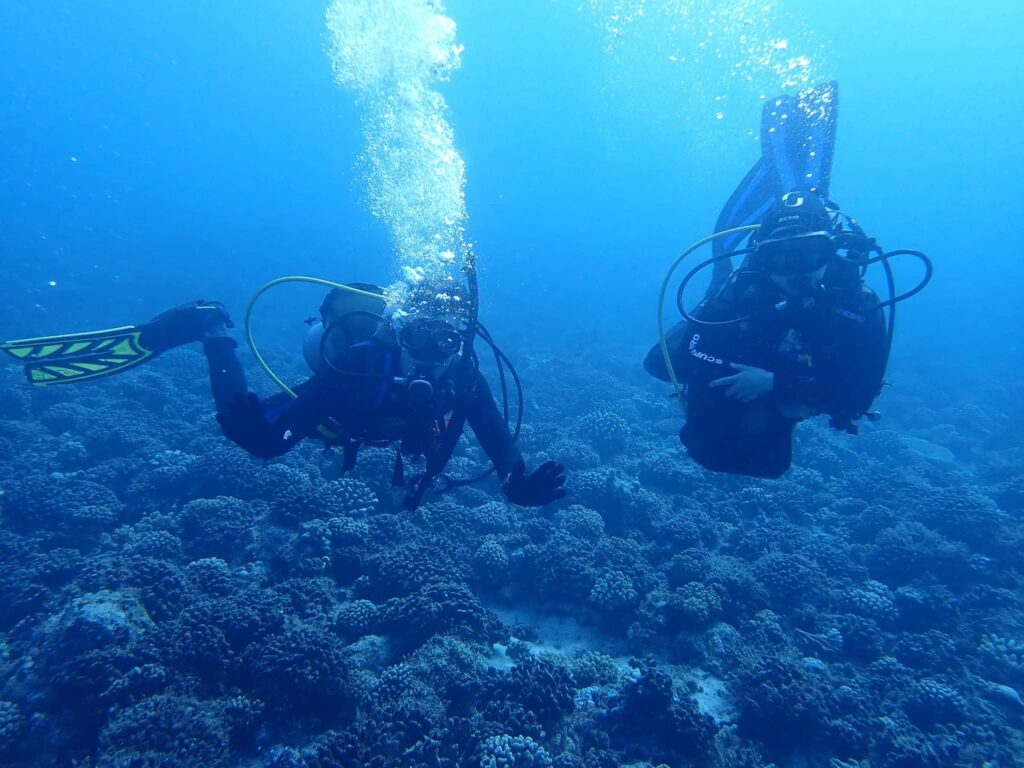Coral reef ecosystems offer a multitude of benefits, ranging from coastline protection from storms and erosion to a source of food through fishing or harvest. In fact, it is estimated that over half a billion people depend on reefs for food, income, and/or protection. However, coral reefs face many threats in our rapidly changing world. Climate change and nutrient input due to run-off from land are two stressors that can affect coral health. How exactly do these stressors impact corals? This week’s guest Alex Vompe is trying to figure that out!
Alex is a 4th year PhD candidate in the Department of Microbiology at OSU, where he is co-advised by Dr. Becky Vega-Thurber and Dr. Tom Sharpton. The goal of Alex’s research is to understand how coral microbe communities change over time and across various sources of stress. While the microbial communities of different coral species can differ, typically under normal, non-stressed conditions, they look quite similar. However, once exposed to a stressor, changes start to arise in the microbial community between different coral species, which can have different outcomes for the coral host. This pattern has been coined the ‘Anna Karenina principle’ whereby all happy corals are alike, however as soon as things start to go wrong, corals suffer differently.



Alex is testing how this Anna Karenina principle plays out for three different coral species (Acropora retusa, Pocillopora verrucosa [also known as cauliflower coral], Porites lobata [also known as lobe coral]) in the tropical Pacific Ocean. The stressors that Alex is investigating are reduction in herbivory and introduction of fertilizer. A big source of stress for reefs is when fish populations are low, which results in a lack of grazing by fish on macroalgae. In extreme situations, macroalgae can overgrow a coral reef completely and outcompete it for light and resources. Fertilizers contain a whole host of nutrients with the intent of increasing plant growth and production on land. However, these fertilizers run-off from land into aquatic ecosystems which can often be problematic for aquatic flora and fauna.
How is Alex testing the effects of these stressors on the corals? He is achieving this both in-situ and in the lab. Alex and his lab conduct field work on coral reefs off the island of Moorea in French Polynesia. Here, they have set up experimental apparatus in the ocean on coral reefs (via scuba diving!) to simulate the effects of reduced herbivory and fertilizer introduction. This field work is conducted three times a year. When not under the water surface, Alex sets up aquaria experiments on land in Moorea using coral fragments, which he has been able to grow in order to investigate the microbial communities more closely. These samples then get processed in the lab at OSU for genomic analysis and Alex uses bioinformatics to investigate the coral microbiome dynamics.

Curious to know more about Alex’s research? Listen live on Sunday, October 23, 2022 at 7 PM on KBVR 88.7FM. Missed the live show? You can download the episode on our Podcast Pages! Also, feel free to follow Alex on Twitter (@AVompe) and Instagram (@vompedomp) to learn more about him and his research.
